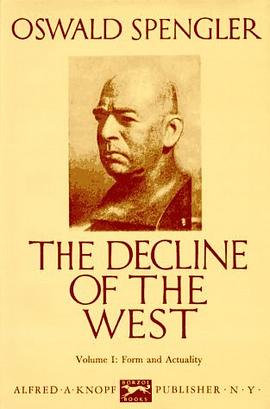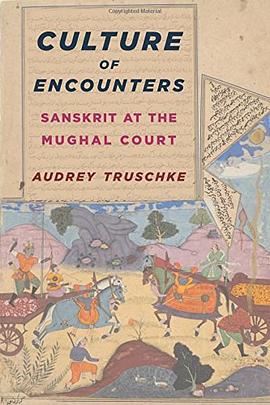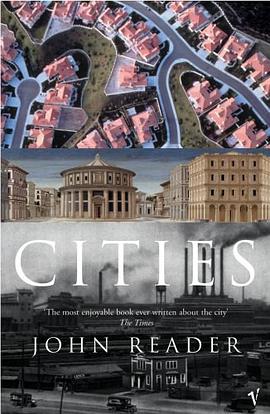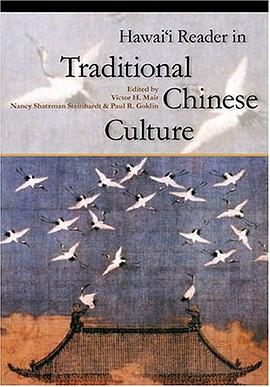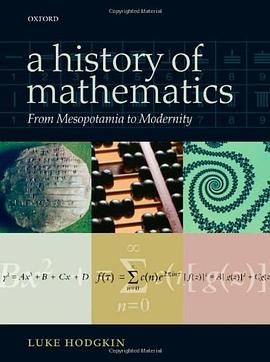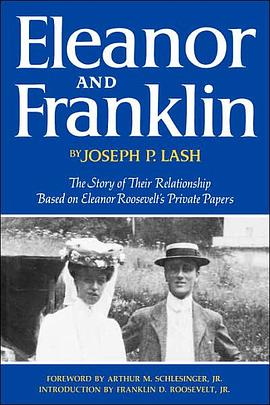

具体描述
Like Winchester's Krakatoa, The Year Without Summer reveals a year of dramatic global change long forgotten by history
.
In the tradition of Krakatoa, The World Without Us, and Guns, Germs and Steel comes a sweeping history of the year that became known as 18-hundred-and-froze-to-death. 1816 was a remarkable year―mostly for the fact that there was no summer. As a result of a volcanic eruption in Indonesia, weather patterns were disrupted worldwide for months, allowing for excessive rain, frost, and snowfall through much of the Northeastern U.S. and Europe in the summer of 1816.
.
In the U.S., the extraordinary weather produced food shortages, religious revivals, and extensive migration from New England to the Midwest. In Europe, the cold and wet summer led to famine, food riots, the transformation of stable communities into wandering beggars, and one of the worst typhus epidemics in history. 1816 was the year Frankenstein was written. It was also the year Turner painted his fiery sunsets. All of these things are linked to global climate change―something we are quite aware of now, but that was utterly mysterious to people in the nineteenth century, who concocted all sorts of reasons for such an ungenial season.
.
Making use of a wealth of source material and employing a compelling narrative approach featuring peasants and royalty, politicians, writers, and scientists, The Year Without Summer by William K. Klingaman and Nicholas P. Klingaman examines not only the climate change engendered by this event, but also its effects on politics, the economy, the arts, and social structures.
.
【From Booklist】
.
In April 1815, two giant eruptions from Tamboro, a supposedly latent volcano east of Java, pumped millions of tons of ash and sulfuric acid into the atmosphere. The immediate results were catastrophic, as the blast, lava, poisonous gases, and a tsunami destroyed entire villages. But the long-term effects, felt the following year, were more far-reaching and devastating. The massive expulsion of gas and dust formed clouds that circled the globe, deflected sunlight, and resulted in a significant lowering of temperatures, especially in the northern hemisphere. This cooling caused crop failures, famine, and social turmoil. The Klingamans lay out the scientific details of the disaster in a lucid, easily digestible manner. They also effectively integrate the natural calamities into a narrative that includes the political and social milieu of Europe and North America. This is an engrossing work that illustrates the fragility of societies when confronted with sudden and severe disruption of weather patterns.
--Jay Freeman
.
【Review】
.
“Many people in North America and Europe believed that the freezing summer of 1816 foretold the end of the world. Unaware that the invisible ash cloud that spread round the world from a volcanic eruption in Indonesia caused the aberrant weather, they thought the sun was dying. William Klingaman vividly portrays the myths and realities of that terrifying season.”
―James M. McPherson, Pulitzer-Prize-winning and New York Times bestselling author of Battle Cry of Freedom, Crossroads of Freedom, Abraham Lincoln and the Second American Revolution, and For Cause and Comrades
.
“When a volcanic eruption on a Pacific island swathed the earth with droplets, producing freakish weather that ruined harvests all over the world, how did people react? William and Nicholas Klingaman tell us how the year without summer affected an astonishing variety of people on different continents, including rulers and peasants, working families, Jane Austen and Mary Shelley. A book like nothing you've read before.”
―Daniel Walker Howe, Pulitzer-Prize-winning author of What Hath God Wrought: The Transformation Of America
.
“William K. Klingaman's groundbreaking work will forever alter the way we view the years immediately following the War of 1812. Beautifully written in prose that will excite both expert and layman, it tells the remarkable story-in superb detail-of how in April 1815 the severest volcanic eruption in 2000 years on Mount Tambora disrupted the earth's weather profoundly, and with it, the politics, economics, arts, and religious beliefs of an era. In every respect this is a marvelous book, impossible to put down.”
―George C. Daughan author of 1812: The Navy's War
.
“Klingaman's vibrant narrative carries us from Indonesia to Ohio as it traces the global effects of the Mt. Tambora eruption. The Year Without Summer is as dexterous at explaining the science of climatology as it is at describing how the endless rain in Geneva figured into Byron's poetry or how New Englanders saw God's wrath in the summer snowstorms that froze their fields.”
―Steven Biel, author of Down with the Old Canoe: A Cultural History of the Titanic Disaster
.
“Massive volcanic cataclysm, ash and global cold, failed harvests, social unrest, and Frankenstein to boot: Klingaman paints an intriguing, multilayered picture of the year when global climate went mad and a lot of people went hungry. The Year Without Summer is a sobering reminder of humanity's vulnerability to natural disasters--in a world with far fewer inhabitants than today.”
―Brian Fagan, author of Beyond the Blue Horizon, The Great Warming and Elixir: A History of Water and Humankind
.
“Intrigued by the weather? You will be after reading The Year Without Summer. Writing with verve and flair, author William Klingaman shows how in 1816 an event in the Far East dramatically influenced weather patterns in Europe and the United States, causing summer blizzards, flooding, and deadly famines. This is a disquieting, but important, story that throws light on global weather patterns and our precarious hold on life.”
―John Ferling author of Independence, Almost a Miracle, and Setting the World Ablaze
.
“The Year Without Summer puts Krakatoa in the shade. This is an erudite, vivid, and fast-paced narrative of the extraordinary consequences of the largest and deadliest known volcanic eruption in history. Linking the stories of a cast of royal, political and literary characters - Louis XVIII, Madison, Napoleon and Byron among them - as well as laborers, seafarers and rabble-rousers, William and Nicholas Klingaman help us visualize and understand how a remote Indonesian volcano helped to foment social, economic and political turmoil on both sides of the Atlantic.”
―Clive Oppenheimer, author of Eruptions That Shook the World and Volcanoes
.
“A thought-provoking account describing the far-reaching and long-lasting effects on Europe and America of a single volcanic eruption in the tropics. Tambora's 1815 outburst caused changes in weather patterns with negative impact on agriculture, resulting in famine and disease. Riots and political discord followed and worsened the socio-economic consequences of the Napoleonic wars in Europe. Such an aftermath provides a warning for what our living earth may have in store for the future.”
―Dr. Jelle Zeilinga de Boer, author of Volcanoes in Human History and Earthquakes in Human History
.
“The Year Without Summer shows how a volcanic eruption in Indonesia transformed life in the United States and Europe. William and Nicholas Klingaman have placed 1816 on the list of pivotal years in history and have provided a compelling account of the mushrooming effects of a natural disaster. This is environmental and world history at its finest.”
―Louis P. Masur, author of The Civil War, 1831, and The Soiling of Old Glory
.
“A great book about one of the least known and most devastating natural disasters in history.”
―Theodore Steinberg, author of Acts of God and Down to Earth
.
“The Klingamans lay out the scientific details of the disaster in a lucid, easily digestible manner. They also effectively integrate the natural calamities into a narrative that includes the political and social milieu of Europe and North America. This is an engrossing work that illustrates the fragility of societies when confronted with sudden and severe disruption of weather patterns.”
―Booklist
.
“An intriguing sidelight on the effects of climate change.”
―Kirkus Reviews
作者简介
WILLIAM K. KLINGAMAN holds a Ph.D. in American History from the University of Virginia and has taught at the University of Virginia and the University of Maryland. He is the author of six previous books, including histories of the years 1918, 1929, and 1941.
.
NICHOLAS P. KLINGAMAN holds a Ph.D. in Meteorology from the University of Reading, where he is now a research scientist. His work focuses on investigating the effects of climate change on tropical weather patterns.
目录信息
读后感
在热门美剧《权力的游戏》里,有一片名叫维斯特洛的大陆,“冰与火”的故事也主要发生在那儿。原小说作者乔治·R·R·马丁的世界观构建里,维斯特洛的季节没有规律可循。在“权游”开始时,维斯特洛已经经历了十余年的漫漫长夏,很多人都已经不记得其他的季节,只有史塔克一家还...
评分人类历史的发展历程是无数偶然因素的催生与累加,当然,世事总有其规律,但规律的必然性并不能避免个别偶然性的影响。而对于人类来说,随着科学技术的积累,我们的主观能动性不断的得到加强,这无疑提升了人类的自负,然而大自然对人类进化的影响始终没有离场,甚至在人类的“...
评分今年入冬较晚,寒冷却加倍,我不得不瑟瑟缩缩地躲在屋里,贴在半温的暖气上,看着窗外凝固的空气,感受一下萧索和万籁寂静,慢慢地无比难过起来。东北的冬天是漫长而寂寞的,初冬尤其寂寞,尚没有放下夏天的轻松心态(当然,东北的秋天可以基本忽略不计,短暂的不知是否来过)...
评分人类历史的发展历程是无数偶然因素的催生与累加,当然,世事总有其规律,但规律的必然性并不能避免个别偶然性的影响。而对于人类来说,随着科学技术的积累,我们的主观能动性不断的得到加强,这无疑提升了人类的自负,然而大自然对人类进化的影响始终没有离场,甚至在人类的“...
用户评价
在设想着小行星轰击地球的后果之余,更为可能的火山灰使地球降温就已经能给人类社会带来巨大灾难,文中出现太多降温作物歉收的字眼。本书的历史考据颇多,尽管局限于欧洲大陆。读罢,地理决定论的观点又得到些许加强。
评分在设想着小行星轰击地球的后果之余,更为可能的火山灰使地球降温就已经能给人类社会带来巨大灾难,文中出现太多降温作物歉收的字眼。本书的历史考据颇多,尽管局限于欧洲大陆。读罢,地理决定论的观点又得到些许加强。
评分《无夏之年》
评分在设想着小行星轰击地球的后果之余,更为可能的火山灰使地球降温就已经能给人类社会带来巨大灾难,文中出现太多降温作物歉收的字眼。本书的历史考据颇多,尽管局限于欧洲大陆。读罢,地理决定论的观点又得到些许加强。
评分《无夏之年》
相关图书
本站所有内容均为互联网搜索引擎提供的公开搜索信息,本站不存储任何数据与内容,任何内容与数据均与本站无关,如有需要请联系相关搜索引擎包括但不限于百度,google,bing,sogou 等
© 2025 book.wenda123.org All Rights Reserved. 图书目录大全 版权所有

